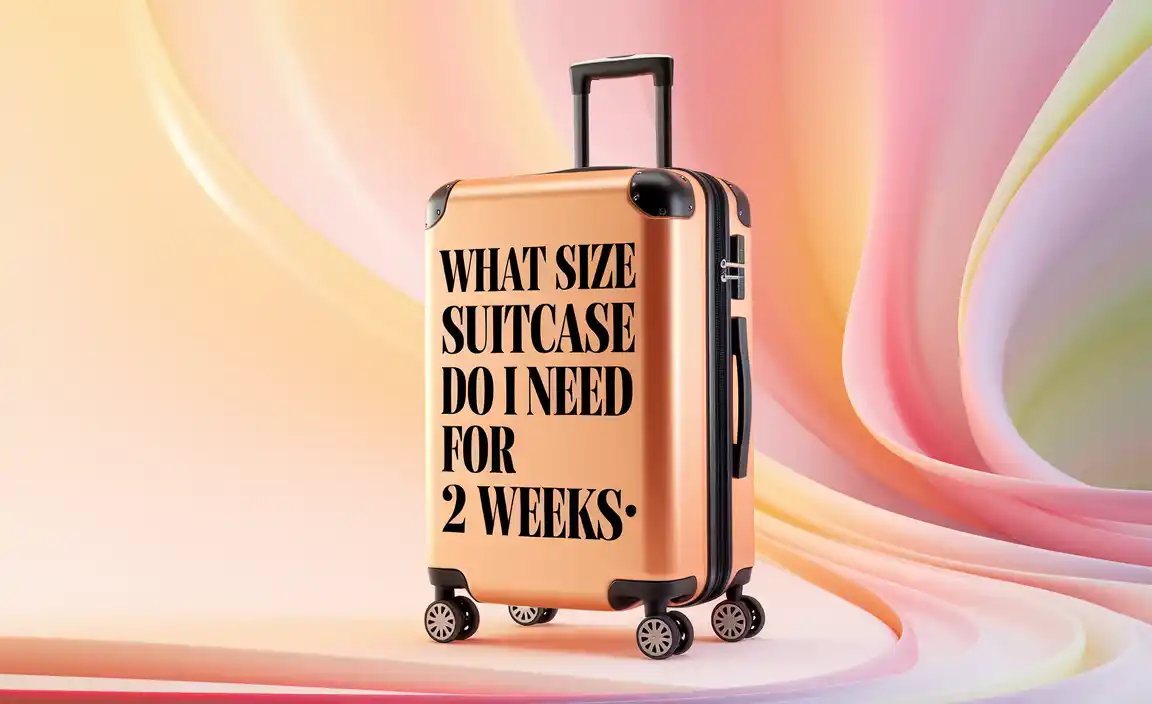Bavaria Public Transport Cheat Sheet: Your Easy Guide to Getting Around
Navigating public transport in Bavaria has never been easier! This cheat sheet breaks down everything you need to know, from train types to ticketing, making your journey smooth and stress-free. Forget confusion; embrace efficient travel across this beautiful German state.
Planning a trip to Bavaria is exciting! But sometimes, figuring out the best way to get around can feel a little overwhelming. Don’t worry, I’ve got your back. This guide is designed to make Bavaria’s public transport super simple, even if you’ve never used it before. We’ll cover all the essentials so you can relax and enjoy the stunning scenery, charming towns, and delicious food. Let’s make your Bavarian adventure a breeze!
Understanding Bavarian Public Transport
Bavaria boasts an incredibly well-connected and efficient public transport network. The backbone of this system consists of trains, but you’ll also find buses and trams playing crucial roles, especially in urban areas and for reaching smaller villages. The key to mastering it is understanding the different providers and how they work together.
Key Players in Bavarian Public Transport
Deutsche Bahn (DB): This is Germany’s national railway company. They operate most of the longer-distance and regional train services throughout Bavaria. Think of them for intercity travel and getting between major towns.
Local Transport Associations (Verkehrsverbund): These are crucial for understanding regional ticketing and integrated networks. The largest and most important in Bavaria is the Munich Transport and Tariff Association (MVV), Münchener Verkehrs- und Tarifverbund. Other examples include AVV (Augsburger Verkehrs- und Tarifverbund) and VGN (Verkehrsverbund Großraum Nürnberg). These associations often cover multiple transport modes (trains, S-Bahn, U-Bahn, trams, buses) within their designated zones, simplifying ticketing significantly.
Local Bus Companies: Many smaller communities and rural areas rely on local bus services, often operated by smaller regional companies. These are usually integrated into the nearest Verkehrsverbund.
Types of Transportation You’ll Encounter
Trains
ICE (Intercity-Express): Bavaria’s high-speed trains. These are perfect for traveling between major cities like Munich, Nuremberg, and Berlin. They are fast, comfortable, and offer amenities like Wi-Fi and dining cars. Reservations are mandatory and usually included in the ticket price.
IC/EC (Intercity/Eurocity): Slightly slower than ICE but still offer comfortable intercity travel. Reservations are also recommended or sometimes mandatory depending on the route.
RE (Regional-Express): These are regional express trains that stop at fewer stations than local trains. They are excellent for connecting larger towns within Bavaria and are a workhorse of the regional network.
RB (Regionalbahn): Local trains that make more stops. They connect smaller towns and villages to larger hubs.
S-Bahn: Suburban trains that operate primarily around major cities, most notably Munich. They form a vital part of the urban and per-urban transport network, connecting the city center with surrounding suburbs and towns.
Metro and Trams (Within Cities)
U-Bahn: The underground metro system, mainly found in Munich. It’s the fastest way to get around the city center and its closest districts.
Straßenbahn (Tram): Trams run on the surface and are common in cities like Munich, Nuremberg, and Augsburg. They are useful for shorter distances within a city or where the U-Bahn doesn’t reach.
Buses: Buses are the most extensive form of public transport, covering areas not served by rail or U-Bahn. They are essential for reaching many smaller villages and navigating within cities.
Ticketing Made Simple
This can be the most confusing part for newcomers, but the key is to understand whether you’re traveling within a single transport association’s zone or crossing multiple zones or regions.
Understanding Zones and Tickets
Zone System: Most regional transport associations (like MVV in Munich) use a zone system. The further you travel from the city center, the more zones you enter, and the more expensive your ticket becomes. You need to select a ticket that covers all the zones you intend to travel through.
Types of Tickets:
Single Tickets: For one-way journeys. These are valid for a limited time and usually for a specific direction.
Day Tickets (Tageskarten): These offer unlimited travel within the selected zones for a full day (typically until 3 AM the next day). They are very cost-effective if you plan to make multiple journeys. Often, there are variants for solo travelers or small groups (e.g., ”Gruppentageskarte” for up to 5 people).
Weekly/Monthly Tickets: For longer stays, these can offer significant savings.
Bayern Ticket: This is a fantastic day ticket for regional train travel throughout the entire state of Bavaria. It’s incredibly popular and a great value for money.
Valid for: All regional trains (RE, RB, S-Bahn, not ICE/IC/EC) and most public transport in cities within Bavaria.
When it’s valid: From 9 AM on weekdays until 3 AM the next day. On weekends and public holidays, it’s valid from midnight until 3 AM the next day.
Who it’s for: You can buy a ticket for 1 person, 2 people, up to 5 people. The price increases per additional person but is significantly cheaper per person than buying individual tickets.
Important Note: You must write the names of all adult travelers on the ticket before or immediately after purchase.
Where to Buy Tickets:
Ticket Machines: Found at almost every train station and many U-Bahn/tram stops. They usually have multiple language options.
DB Travel Centers: At larger train stations.
Online/App: The DB Navigator app is invaluable for planning journeys, checking schedules, and buying tickets. Many local transport associations also have their own apps.
Special Tickets and Passes for Tourists
For tourists exploring multiple cities or regions, options like the Bayern Ticket are invaluable. If you’re staying primarily in Munich, the Munich Card or CityTourCard offer free public transport and discounts on attractions.
Planning Your Journey Step-by-Step
Here’s a simple process to plan your trip using Bavarian public transport:
- Identify Your Start and End Points: Know where you are and where you want to go.
- Use a Journey Planner: The best tool is the Deutsche Bahn (DB) website or the DB Navigator app. It covers almost all public transport in Germany, including regional buses and local transport. Simply enter your departure and arrival stations/stops, and it will show you the fastest or most convenient options.
- Check the Route and Connections: The planner will show you which trains or buses to take, including transfer times and station names. Pay attention to the train type (ICE, RE, S-Bahn, etc.) and platform numbers.
- Determine Your Ticket Needs: Based on the journey planner results, decide if a single ticket, a day ticket, or a Bayern Ticket is most suitable. If your entire trip is within a specific city transport association’s area (e.g., MVV), a local day ticket might be cheaper than a Bayern Ticket. If you’re traveling between cities or to more rural areas, the Bayern Ticket is often the most economical for regional travel.
- Purchase Your Ticket: Buy your ticket in advance if possible, especially for longer journeys or if using the DB Navigator app. For local travel and if unsure, purchase at the station before boarding.
- Validate Your Ticket (if applicable): For paper tickets purchased at machines or counters that don’t have a specific date/time printed, you might need to validate them before boarding. Look for small machines on the platform or at the entrance to the platform area – you insert your ticket to have it stamped with the date and time. Tickets bought via the DB app or printed with a specific date usually don’t need validation. The Bayern Ticket needs names written on it.
- Board and Enjoy Your Ride: Find your platform, check the departure board for your train/bus, board, and relax! Keep your ticket handy for potential inspections.
Essential Tips for Navigating Bavaria
Plan Ahead, But Stay Flexible
While the DB Navigator app is excellent, always double-check departure boards at the station for any last-minute platform changes.
Understand Peak Times
Commuter hours (roughly 6:30 AM – 9:00 AM and 4:00 PM – 6:30 PM on weekdays) can get crowded, especially on S-Bahn lines in and out of Munich. If you can travel outside these times, you’ll have a more comfortable experience. For those who might need extra space or convenience due to personal needs, like carrying children’s items or personal care essentials, this is especially important.
Luggage and Comfort
If you’re traveling with substantial luggage, factor in extra time to navigate stations and find space. Modern trains usually have designated luggage racks. For a comfortable journey, especially on longer trips, consider bringing a neck pillow and a travel blanket. If you have specific needs for extended travel, like extra comfort or absorbency for adult or child diapers, ensure you’ve packed discreetly and comfortably for your journey.
Food and Drinks
You can usually bring your own snacks and drinks onto trains and buses. Some long-distance ICE trains have a restaurant car, but it can be pricey. Buying supplies from a local supermarket before you travel is a more budget-friendly option.
Language Barrier is Minimal
While knowing a few German phrases is always appreciated, most signage, announcements, and ticket machines are bilingual (German/English). The DB Navigator app also displays information in English.
Punctuality is Key
Bavarian transport is generally very punctual. Trains and buses run on strict schedules. Missing your connection can mean a significant wait for the next one, so always aim to be on time.
Safety and Security
Bavarian public transport is very safe. However, it’s always good practice to be aware of your belongings, especially in crowded stations or on busy trains. Keep valuables secure. This is particularly important for parents managing children and their belongings, or individuals with specific personal care items.
Comparing Popular Travel Options in Bavaria
Here’s a quick look at how some common travel scenarios stack up:
| Scenario | Recommended Transport | Best Ticket Option | Considerations |
|---|---|---|---|
| Day trip from Munich to Neuschwanstein Castle (via Füssen) | Regional train (RE/RB) | Bayern Ticket (if traveling after 9 AM on weekdays, anytime on weekends) | Requires bus from Füssen to Hohenschwangau/Schloss. Book castle tickets well in advance. |
| City exploration in Munich | U-Bahn, S-Bahn, Tram, Bus | MVV Day Ticket (Solo or Group) or Munich Card/CityTourCard | Covers all local transport within designated zones. |
| Travel between Munich and Nuremberg | ICE or IC/EC for speed; RE/RB for economy (using Bayern Ticket) | ICE/IC/EC ticket (book in advance for deals) or Bayern Ticket if using regional trains. | ICE is significantly faster (approx. 1 hour) but more expensive. Regional trains take approx. 2-2.5 hours. |
| Exploring the Romantic Road (multiple towns) | Combination of Regional Trains and Buses | Bayern Ticket for train legs. Local bus tickets for specific routes. | Public transport can be infrequent to smaller villages on the Romantic Road; research bus schedules carefully. Renting a car might be an alternative for flexibility. |
Understanding Adult and Child Travel Needs
For families traveling with young children, or for adults who require personal care assistance during travel, the public transport system in Bavaria is generally accommodating.
Traveling with Children
Strollers: Most S-Bahn, U-Bahn, and regional trains have designated spaces for strollers. Taller platforms can be an issue at some older stations, but many have ramps or elevators.
Seating: Children under a certain age (usually 6) often travel for free when accompanied by an adult holding a valid ticket. Always check the specific rules of the transport association.
Diaper Changes and Facilities: Public restrooms at larger train stations and sometimes on trains offer changing facilities. However, these can vary greatly. It’s always wise to carry a portable changing mat and be prepared with necessary supplies. If you regularly travel with a child and need secure, comfortable, and absorbent child diapers, ensuring you have an ample supply and a discreet way to carry them is key to stress-free journeys.
Adult Personal Care During Travel
For adults who might require adult diapers for comfort, security on long journeys, or due to continence needs, Bavaria’s transport system is manageable.
Long Journeys: For long-distance ICE trains with dining cars, there’s usually more time and potentially more comfortable seating. For regional trains, the Bayern Ticket allows unlimited hop-on, hop-off within its validity period, giving flexibility.
Restroom Access: Larger train stations and ICE/IC trains will have accessible restrooms. Public toilet availability in smaller towns or villages might be more limited, so plan accordingly.
* Discreet Packing: Carrying personal care items discreetly in your luggage is standard practice. Ensure you have enough for your entire journey, as purchasing them on the go might be difficult in rural areas. Packing along with other travel essentials like comfortable clothing and travel-sized toiletries makes it seamless.
FAQ: Bavaria Public Transport
What is the easiest way to buy train tickets in Bavaria?
The most convenient way is often using the DB Navigator app. It allows you to search for journeys, check schedules, see prices, and purchase tickets directly on your phone. You can also buy tickets from machines at stations or from DB Travel Centers.
Do I need to validate my ticket?
Tickets bought through the DB Navigator app or online tickets with a specific date and time usually do not need validation. However, paper tickets bought from machines that don’t show a specific date and time (like some single tickets or certain day tickets) often do. Look for small validation machines on the platform or at station entrances to stamp your ticket with the date and time before boarding.
Is the Bayern Ticket worth it for day trips?
Yes, the Bayern Ticket is excellent value for money for day trips within Bavaria using regional trains (RE, RB, S-Bahn). It’s valid for unlimited travel for one day and can be used by up to 5 people, making it very economical for groups. Remember it’s valid from 9 AM on weekdays.
Can I use the Bayern Ticket on ICE trains?
No, the Bayern Ticket is only





